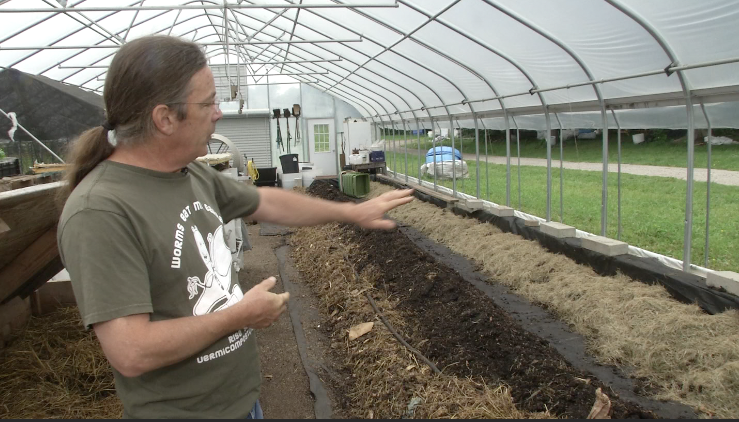Composting Food Waste Could Replace The Use Of Landfills
- Published: 7/7/2015
- Comments
EAST LANSING - Land fills are becoming a growing problem. They release methane into the air and take up space. Local areas have found composting to be the next best alternative.
Composting has expanded and is becoming a growing phenomenon.
Compost Katie is just one option.
Owner of Compost Katie, Woody Campbell said, "we collect food waste weekly from households and residents. Once a week we stop by and pick that bucket up."
Composting is better for the environment than land fills and can save families money annually.
"My family, we use to have a 45 gallon Granger roll out bin. We were paying $27.00 a month now we're paying about $3.50 for garbage bags plus $12.00 for Compost Katie so we' re saving close to $100.00 a year," said Campbell.
To save on cash and waste, you could compost right outside your home.
To create a compost bin you could use pallets, or for beginners you could use something as simple as a trash can, just be sure to place holes along the side and bottom for drainage.
What's most important is the material that goes inside.
"Make sure you have lots of green material like grass clippings or food scraps, high in nitrogen and carbon material like dried leaves," said Meridian Township Recycling Coordinator Leroy Harvey.
Composting is being used and experimented on in a much larger scale. Michigan State University has found a way turn compost into energy.
Harvey said, "Brody Hall for example takes their food waste over there and it gets put in this methane digester and the methane is captured and used for power."
Michigan State University is working on other project as well.
John Biernbaum, professor at Michigan State University said "we have a large greenhouse this same size up on campus in the Brody Complex where all the plants are growing in compost."
MSU is using red warms to compost they in turn use the compost soil and nutrients to grow vegetables.


 Spanish
Spanish Chinese (Simplified)
Chinese (Simplified) Korean
Korean French
French German
German Hindi
Hindi Urdu
Urdu Japenese
Japenese Arabic
Arabic Russian
Russian Farsi
Farsi
